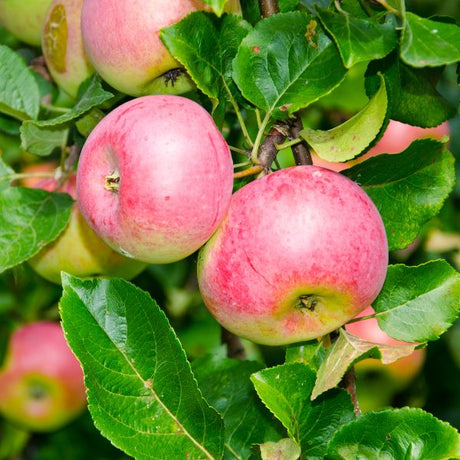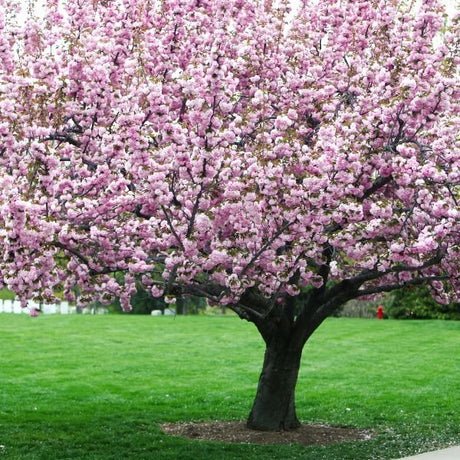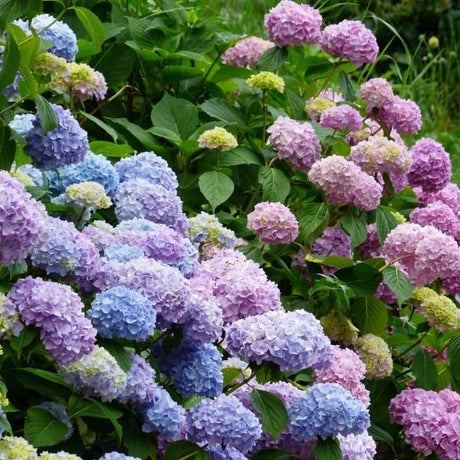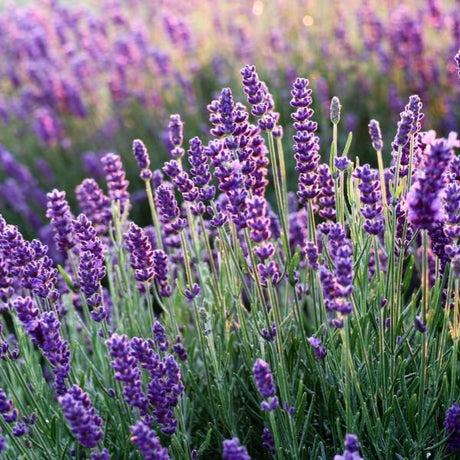Lemon Elberta Peach Tree
- Stay Protected with Plant Sentry ™
Lemon Elberta Peach Tree - #3 Container 4-5 Feet is backordered and will ship as soon as it is back in stock.
To receive an email notification when our next crop is ready, please enter your email below..*
Plant Sentry™
Plant Sentry™
Plant Sentry is designed to protect both consumers and the nursery trade from invasive plant pests and diseases. Sites that display the Plant Sentry protection badge are protected from consumers buying and nurseries shipping material carrying invasive pests and diseases.
This proprietary eCommerce software prevents the shipment of a restricted plant to each state. The Plant Sentry system includes a shipment certification program. The Plant Sentry Compliance Officer works closely with NatureHills.com and each nursery or fulfillment center to ensure only compliant plants are sold to customers.
Click Here to learn more

Delivery and Shipping
Delivery and Shipping
Shipping
To obtain a more accurate shipment time-frame, simply enter your zip code in the “Find Your Growing Zone” box to the right. Our plants are grown all over the country and lead time on items may be different because of this. Once your order is placed, you will also receive the specific shipment time-frame information as part of your order confirmation. Once an item ships, you will receive shipment notification and tracking numbers, so you can follow along while your plant travels to your doorstep. We use FedEx, UPS, or USPS at our discretion.
Due to winter weather we have put a hold on shipping to the areas shown below in grey. You can still order now and we will ship the plant to you during an appropriate time for your zone.
Standard Shipping Rates
At Nature Hills we handle, package and ship the products you order with the utmost care to ensure healthy delivery. Shipping and handling charges are calculated based on the tables below. Please note that some items include an additional handling surcharge, these will be noted on the item's product page.
| From | To | S&H |
|---|---|---|
| $0 | $19.99 | $24.99 |
| $20 | $49.99 | $29.99 |
| $50 | $69.99 | $34.99 |
| $70 | $99.99 | $39.99 |
| $100 | $129.99 | $44.99 |
| $130 | $149.99 | $48.99 |
| $150 | $150+ | Approx 28% |
Click here to see our full rates
Buying Options for Plants
Nature Hills sells a large variety of plants with several options available. Plants are offered in both potted containers and as dormant bare root without soil. Here is a helpful resource to understand your options as you create a beautiful landscape with help from Nature Hills.
Ever wonder what a larger plant will mean for your landscape? Container Sizes are really all about the age of the plant!
Seasonally, Nature Hills offers hand selected, high quality bare root trees, shrubs and perennials. Bare root plants are sold by height from the top of the root system to the top of the plant. Plants may be taller than the height minimums.
- Popular sizes of select trees are 1 foot, 2 feet, 3 feet, etc.
- Popular sizes of select bare root plants is 1 foot, 18 inches, etc.
Nature Hills Container Size by Volume
Keep in mind, specific varieties and different growing conditions can affect the rate at which plants grow. Variations in size may occur.
| Young Plants to 18 Months | ||
|---|---|---|
| Size | Volume | |
| 2"x2"x3" | Ranges from | .18 to .21 dry quarts / .198 to .23 dry liters in volume |
| 4.5" Container | Equal to | .65 dry quart / .72 dry liter in volume |
| Sprinter Pot | Equal to | .63 dry quart / .69 dry liter in volume |
| 4" Container | Ranges from | .31 to .87 / .35 to .96 dry liter in volume |
| 6" Container | Equal to | 1.4 dry quarts / 1.59 dry liters in volume |
| 1 Quart | Equal to | 1 dry quart / 1.1 dry liter in volume |
| 5.5" Container | Equal to | 1.89 of a dry quart / 2.08 dry liters in volume |
| 4"x4"x5" | Ranges from | .8 to 1.1 dry quarts / .88 to 1.2 dry liters in volume |
| 4"x4"x6" | Ranges from | 1.0 to 1.3 dry quarts / 1.1 to 1.41 dry liters in volume |
| 4"x4"x9" | Ranges from | 1.1 to 2.1 dry quarts / 1.2 to 2.3 dry liters in volume |
| 4"x4"x10" | Ranges from | 1.7 to 2.3 dry quart / 1.87 to 2.53 dry liters in volume |
| Plants 18 Months - 2.5 Years Old | ||
|---|---|---|
| Size | Volume | |
| 2 Quart | Equal to | 2 dry quarts / 2.2 dry liters in volume |
| #1 Container | Ranges from | 2.26 to 3.73 dry quarts / 2.49 to 4.11 dry liters in volume |
| 5"x5"x12" | Equal to | 3.5 to 4.3 dry quarts / 3.85 to 4.74 dry liters in volume |
| Plants 2 - 4 Years Old | ||
|---|---|---|
| Size | Volume | |
| #2 Container | Ranges from | 1.19 to 1.76 dry gallons / 5.24 to 7.75 dry liters in volume |
| #3 Container | Ranges from | 2.32 to 2.76 dry gallons / 10.22 to 12.16 dry liters in volume |
| Plants 3 - 5 Years Old | ||
|---|---|---|
| Size | Volume | |
| #5 Container | Ranges from | 2.92 to 4.62 dry gallons / 12.86 to 20.35 dry liters in volume |
| #6 Container | Ranges from | 5.25 to 6.01 dry gallons / 23.12 to 26.42 dry liters in volume |
| #7 Container | Ranges from | 5.98 to 6.08 dry gallons / 26.34 to 26.78 dry liters in volume |
Plant Highlights
Lemon Elberta Peach Tree highlights at a glance!
Plant Highlights
Plant Highlights
-
Brand
-
Botanical Name
-
Growing Zones
-
Mature Height
-
Mature Spread
-
Sun ExposureFull Sun
-
Moisture
-
Soil
-
Growth RateMedium
-
Pollinator Friendly
-
Pollinator Required
-
Fragrant
-
Pruning Time
-
Bloom PeriodEarly Spring, Late Spring
-
Harvest Time
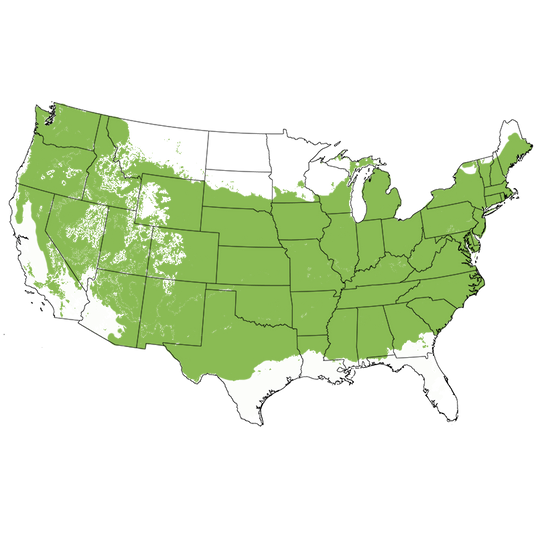
Growing Zones 5-8
Lemon Yellow Delicious Fruit Lemon Elberta Peach Tree!
- Bright Yellow Fuzzy Skin
- Bright Yellow Flesh!
- Red Blushed When Ripe
- Sweet Rich Flavor
- Gorgeous Pink Blossoms
- Fragrant & Attracts Pollinators!
- Freestone
- Self-Fruitful
- Cold & Frost Tolerant
- Earlier Late-Season Harvest
- Fresh Eating, Canning, Baking, Drying & Freezing
- Developed in 1907 in Georgia
- 700-800 Chill Hours
Lemon Elberta Peach Tree (Prunus persica 'Lemon Elberta') is a fantastic upgrade to the already amazing Elberta Peach! Brilliant yellow, fuzzy skin with a slight red blush when ripe, and brilliant yellow flesh!
One of the finest fresh eating peaches available. Firm flesh and incredible flavor, as well as great yield, making it a highly valuable tree.
These yellow freestone peaches are wonderful choices for cooking, preserves, freezing and baking. This is also a great canning variety because the fruit is nice and firm. You'll get thick, meaty slices that can be dried or dehydrated as a fantastic snack.
Ripening in the early-late season. You'll likely harvest in September, although some areas come on a little earlier in August. Though self-fruitful, planting with another variety gives larger yields and extends your harvest season.
How to Use Lemon Elberta Peach In The Landscape
The pink spring blossoms are a fantastic display and make this a highly ornamental flowering tree, in addition to the crops of healthy fruit!
The green glossy foliage provides a fantastic backdrop for the late-season harvest of yellow fuzzy fruit. Harvest earlier than other late-season crops, you can plant among early and late season Peaches for a larger harvest and extend your growing season.
An outstanding specimen, these are ornamental landscaping trees that provide a nice backdrop to your garden beds.
Prune smaller for easy harvest and to tuck into established landscapes. Or, when left unpruned, creates fantastic shade. Set out your lawn chair and watch the bees busily work, or watch your harvest ripen in the cooling shade.
#ProPlantTips For Care
Peaches grow best in full sun, at least six hours of direct sunlight per day. Great in the Pacific Northwest region, these are best in USDA growing zones 5 through 8 in good draining soil.
While not particular on soil type, fruit trees do best in enriched, highly organic, well-drained soil. A generous layer of mulch helps retain soil moisture as well as insulate the root system from heat and chill.
Water regularly to ensure a healthy tree and juicy harvest. While somewhat drought tolerant once established, it’s best to protect your investment with a regular watering schedule. Keep young trees especially well-watered and do not allow them to dry out.
Situate in an area that is protected from frost pockets and with good air circulation. Prune to keep an open canopy so that both sunlight and airflow reach the interior. Head over to read more on Peach Tree Care in our Garden Blog for more Fruit Tree Planting, Fruit Tree Pruning and Plum Tree Care tips and tricks can be found!
Lemon Elberta Peach Tree is a fantastic improved Elberta peach variety, so order your lemon-yellow Peach from NatureHills.com today!
Peach Tree Frequently Asked Questions
How long does it take for Lemon Elberta Peach Trees to bear fruit?
Nature Hills Nursery sells fruit trees with mature root systems that are already three to four years old, so you’ll enjoy fruit sooner than you would with younger trees! Expect a young peach tree to begin fruiting by the 3rd year after you plant it.
How Fast Do Lemon Elberta Peach Trees Grow?
Be sure to plant your peach in a sunny and well-drained location. Once your Lemon Elberta (Prunus persica 'Lemon Elberta') has been established (after the first year), it can typically add 12-18 inches of new growth in a growing season. If your plants are adding less than that in a season, it may be worth your while to check the fertility level.
Where do Lemon Elberta Peach Trees Grow Best?
Peach trees grow best in well-drained, fertile soil in at least 6 hours of full sun per day or more.
Do You Need 2 Peach Trees to Produce Fruit?
All peach trees are self-fertile, however planting more than one peach tree that blooms at about the same time, boosts yields on both trees and extends your harvest time!
Harvest Times for Lemon Elberta Peach Trees
Lemon Elbertas are typically ready to harvest in July to August. Keep in mind exact harvest times are subject to change depending on the hardiness zones they’re being grown in.
Early-Season? Mid-Season? Late-Season? The terminology can be confusing for new peach tree growers. Weather, climate and your tree determine when it’s ripe.
When Should Lemon Elberta Peach Tree be Planted?
Bareroot peach trees can be planted in spring when they are available in your area. Container-grown peach trees can be very successfully transplanted all throughout the growing season. Check for first and last frost dates for your area with your local County Extension Office.
- Plant bareroot peach trees in the early spring.
- Plant container-grown trees anytime the ground is not frozen by digging a hole as deep as the soil line and twice as wide.
How Do I Find Lemon Elberta Peach Trees for Sale Near Me?
Make your life easier and your yard happier by shopping for peach trees at NatureHills.com online fruit tree nursery. You’ll find a massive selection of fruit trees for sale, including many lovely peach tree varieties!
Choose the right tree for your area by first finding your USDA growing zone by entering your zip code in the field above the Plant Highlights section on our product pages. Narrow down your options by plant hardiness zone, sun availability, and size requirements.
Place your order, knowing it’s backed by the Nature Hills Nursery product guarantee and protected by Plant Sentry™, which helps ensure regulated plant materials aren’t sent to prohibited areas.
Expect to receive your plants at the appropriate planting time for your growing zone when temperatures are safest for those plants that ship in fall, winter, or early spring.
Shop the selection of mature peach trees for sale at Nature Hills Nursery and place your order for Lemon Elberta Peach Tree today.
What shipping options do you offer?
NatureHills.com works closely with our growers and nursery professionals to ensure we ship when it is most appropriate for your area. Our goal is to deliver the hardiest plants by avoiding extreme high and low temperatures. Check out our shipping schedule for more information and to learn our wills and won’ts when it comes to shipping plants. Find your Lemon Elberta Peach Tree for Sale for sale here at NatureHills.com!



